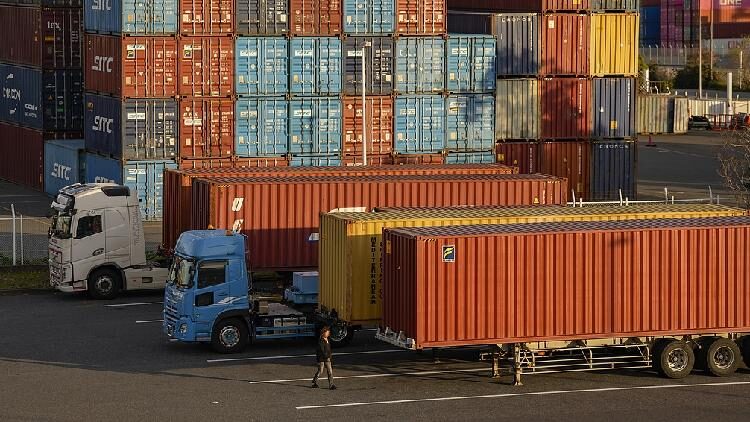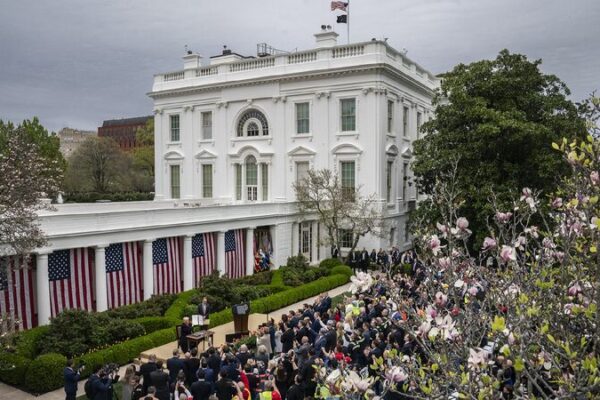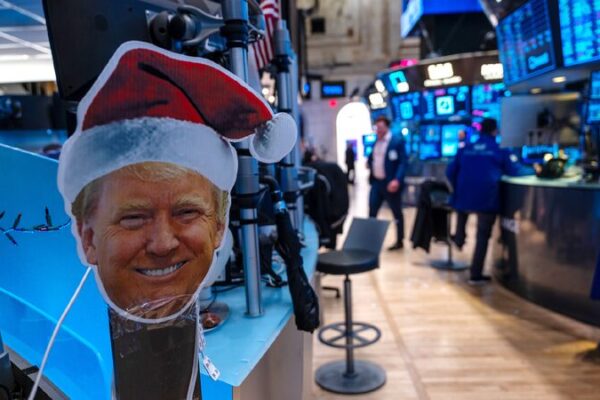President Donald Trump unexpectedly joined trade talks with Japan on Wednesday, stirring economic concerns amidst ongoing global trade tensions. The discussions marked one of the first face-to-face negotiations since the U.S. imposed tariffs on global imports, a move that has unsettled markets and ignited fears of a recession.
Japan had initially anticipated the talks to be a preliminary fact-finding mission without direct involvement from President Trump. His unexpected participation signaled a desire to maintain tight control over negotiations with various countries in the coming weeks.
“It was a great honor to meet with the Japanese Delegation on trade. Big progress!” Trump announced on social media, offering no further details on the discussions.
Leading the Japanese delegation was Ryosei Akazawa, a close confidant of Prime Minister Shigeru Ishiba and the Economic Revitalization Minister. After the meeting, Akazawa provided limited details but noted that both parties agreed to hold a second meeting later in the month. He emphasized that reaching a deal with Japan was a “top priority” for President Trump.
Exchange rates, a sensitive topic due to past accusations of currency manipulation to gain trade advantages, were reportedly not part of the discussions. “We did not discuss currency matters,” Akazawa stated, which led to the U.S. dollar strengthening against the yen by about 0.5% that day.
Following the talks with President Trump, Akazawa met with Treasury Secretary Scott Bessent, Commerce Secretary Howard Lutnick, and Trade Representative Jamieson Greer for an extended session.
Prime Minister Ishiba expressed cautious optimism, stating, “The negotiations will not be easy going forward, but President Trump has indicated that he wants to give top priority to the talks with Japan.”
Meanwhile, Finance Minister Katsunobu Kato voiced Japan’s deep concerns over the potential global economic fallout from U.S. tariffs. In an interview with Reuters, Kato warned that the tariffs could impact Japan’s economy through various channels, including trade and financial markets.
“There’s a risk of exerting downward pressure on Japan’s economy,” Kato said, highlighting the potential adverse effects of market volatility triggered by the tariffs. He emphasized the importance of stable currency rates reflecting economic fundamentals and expressed plans to communicate closely with U.S. officials on these issues.
Kato is expected to visit Washington for meetings with the International Monetary Fund and the Group of 20, where he will likely continue discussions with Treasury Secretary Bessent.
“We need to scrutinize how the U.S. tariff measures affect financial market moves, including currency rates,” Kato stated. “It’s important for currency rates to move stably, reflecting fundamentals.”
Reference(s):
cgtn.com








